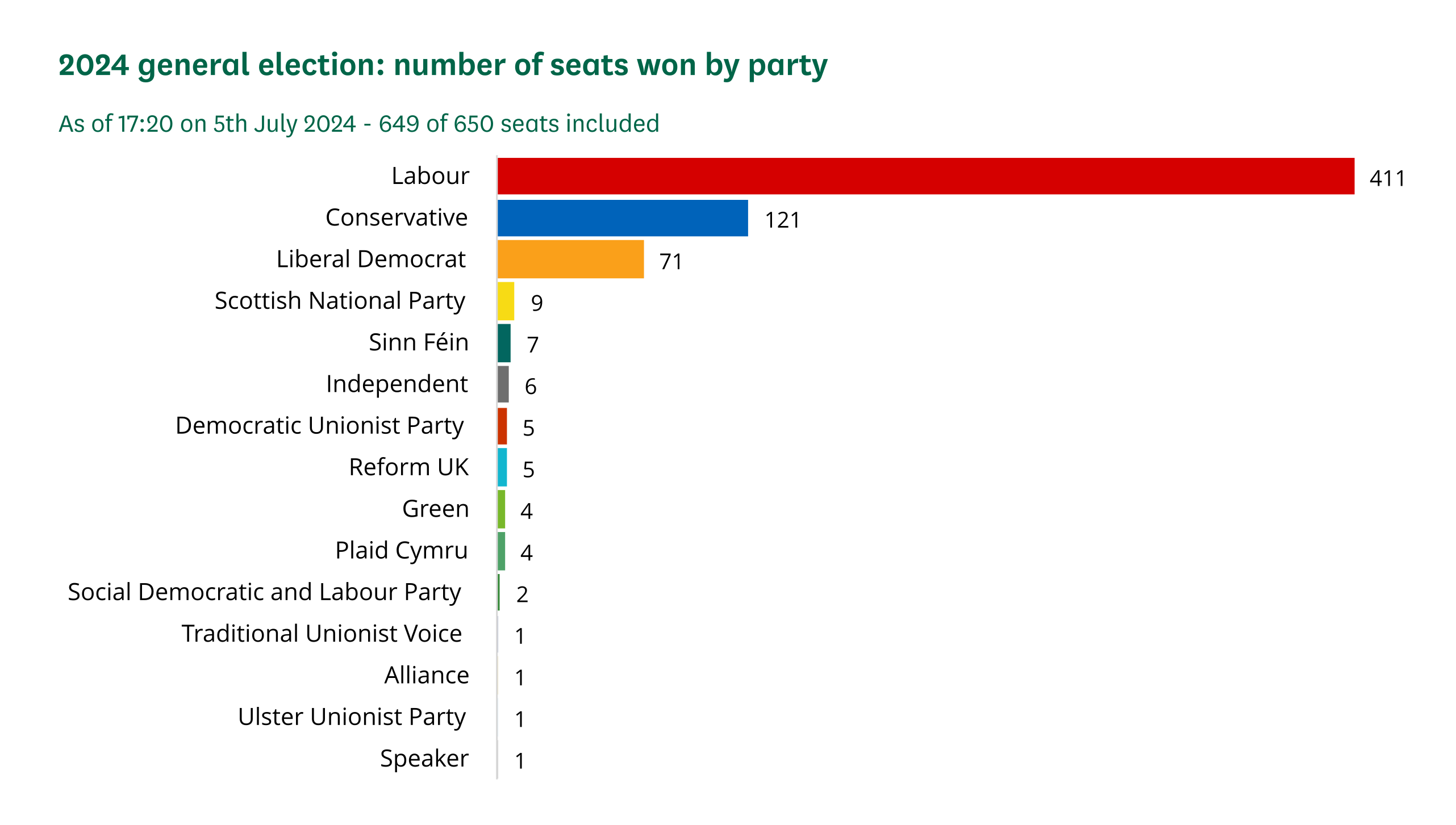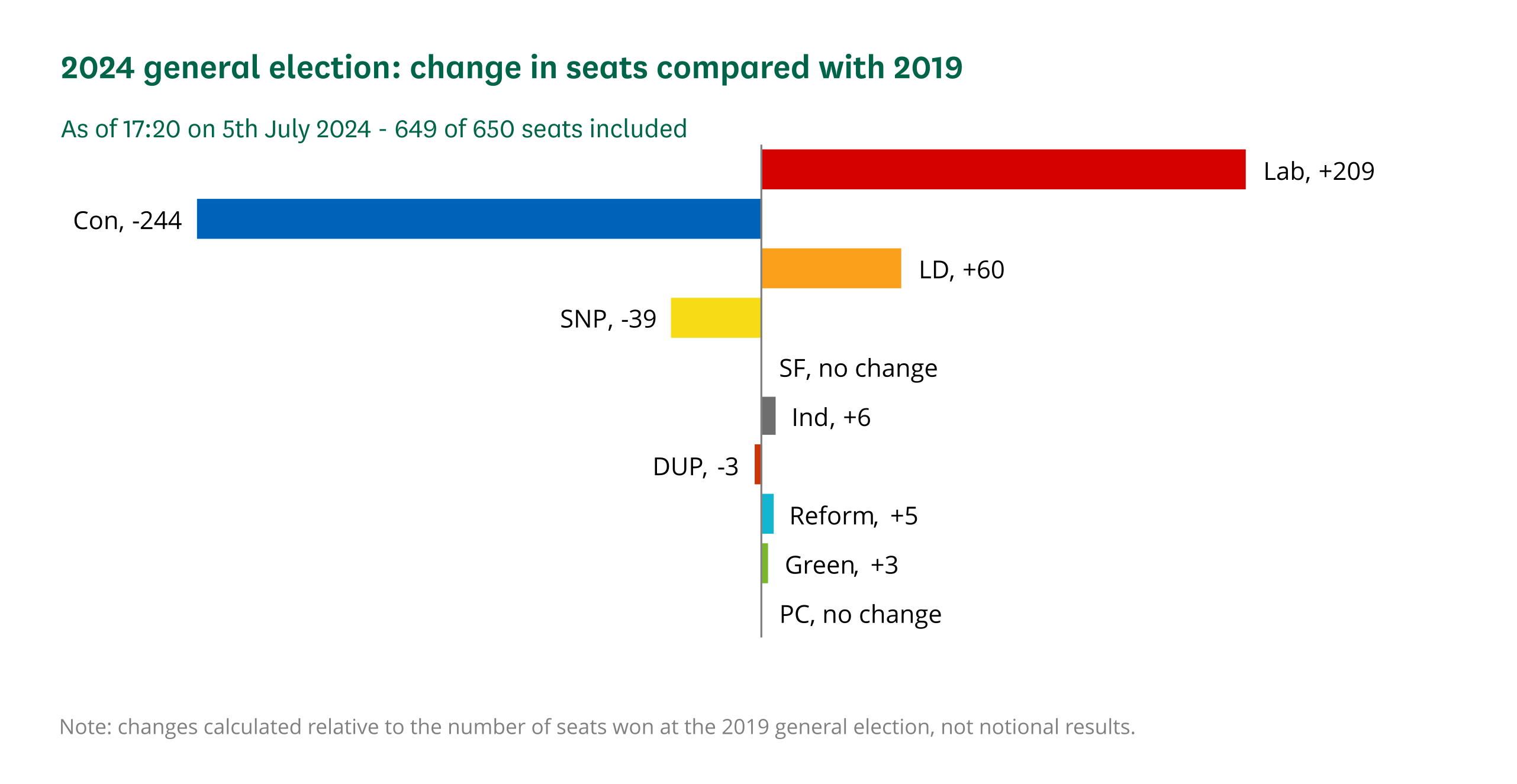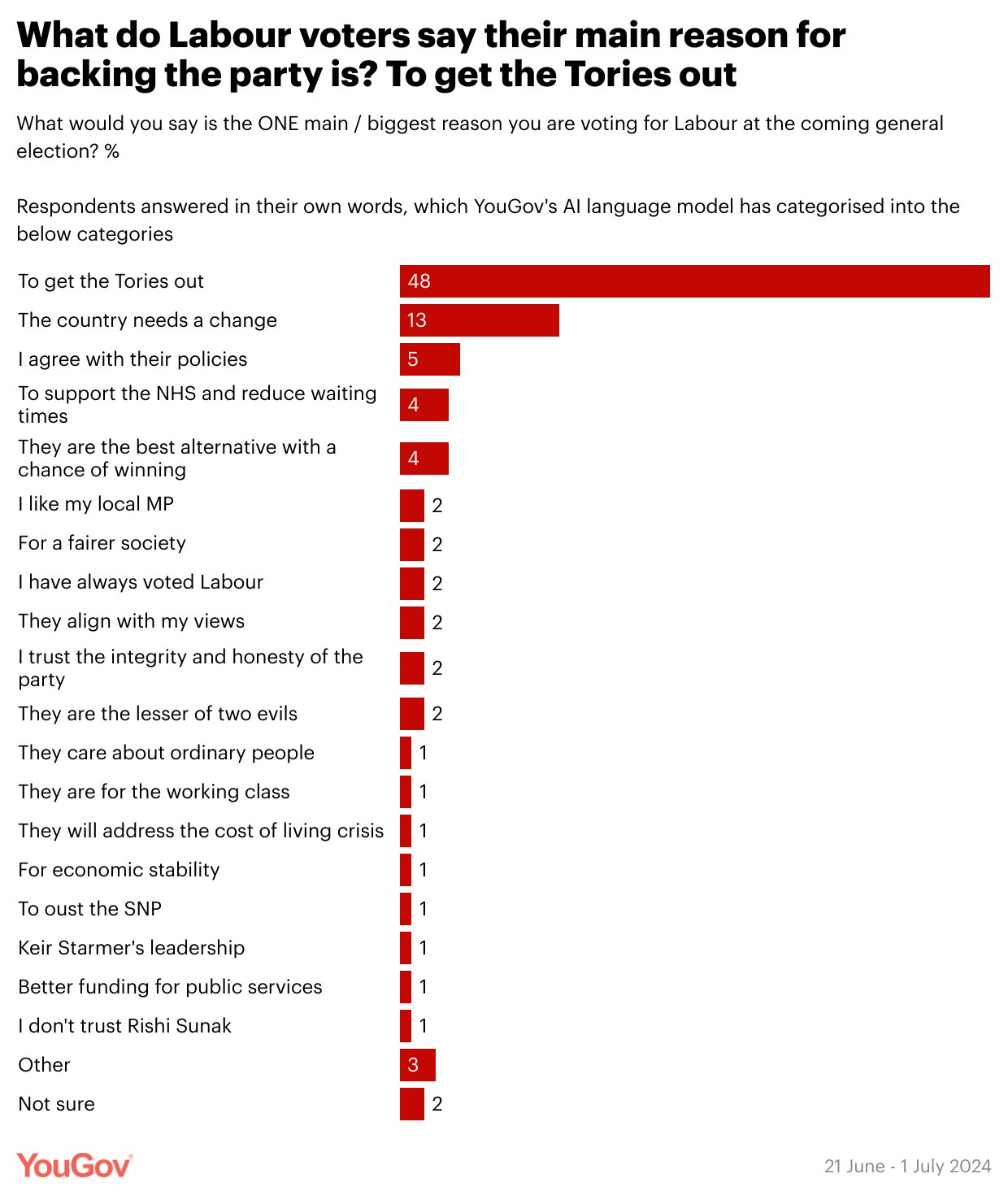Labor won with a massive majority. In seats:


- Labour Party: 35 percent vote share, 412 seats
- Conservative Party: 24 percent vote share, 121 seats
- Liberal Democrats: 12 percent vote share, 71 seats
- Reform UK: 14 percent vote share, 4 seats
- Green Party: 7 percent vote share, 4 seats
- Scottish National Party (SNP): 2 percent vote share, 9 seats
- Sinn Fein: 0.7 percent vote share, 7 seats
- Plaid Cymru: 0.7 percent vote share, 4 seats
Labour has a huge MP majority, but received less of the vote than they did in 2017 under Corbyn.
The Reform surge, which at one point looked like it might overtake and pass the conservatives died out, alas. But note that Reform received more votes than the Liberal Democrats but received four seats to their seventy-one and Sinn Fein received 7 seats for .7% of the vote. In first past the post, you want your votes clumped, not spread out. In vote total terms, Reform is now the third party.
It’s also worth noting that almost no one is voting Labour because they like Labour or Keir Starmer:

As with LaPen’s National Rally, Reform may well improve with each election and Labour is vulnerable to a real challenge from the left.
But let’s move to more immediate consequences.
The Conservative austerity policies severely gutted Britain:
- The grant to local governments dropped 60% from 2010 to 2020. They’re the ones who run most of the government: libraries, fire departments, council housing, roads, public transit and so on.
- 20% of libraries closed
- Spending on old people down 35% with one estimate saying this killed 45K people.
- Inflation adjusted wages are lower than in 2007, and the inflation numbers are certainly lower than reality.
- Rent and housing costs are way up.
- Twenty percent less people get cancer treatment on time.
- The UK now has the highest homelessness rates in the Western world.
- Gutted universities, one of the few world class industries left in Britain (and one which brings in a lot of foreign currency.)
And so on. Tory rule has been a catastrophe.
But there’s little reason to expect Labour rule to be much better. They voted for many of the bills that caused this catastrophe, and didn’t oppose most of the rest. They still believe in austerity and neoliberalism. It’s likely they’ll increase some taxes, but they’re not likely to use the money to spend much more and fix problems: Britain is serious fiscal condition, and the level of tax raises necessary to deal with that and to allow spending is off the table, especially as to really get money they’d have to tax the city and massively raise taxes on the rich.
They will continue to clamp down on public dissent, and likely use the banking system against protestors, along with locking them up. I’m unsure how they’ll handle strikes, but odds are that Starmer will be unsympathetic to mass strikes and use legislation and the police against them (which is why the big unions should leave Labour and support a new left party.)
In other words, Britain’s decline is not going to halt under Labour and neither is the decline in standards of living for most Britons.
This means that there will be room for Reform and a new left party to surge. While I’m not a fan of right wing social policies, Brits tend to be more left wing economically than Labour but socially conservative, which means Galloway’s “Worker’s Party” is positioned to take advantage, being economically left and socially right on some key issues, such as trans rights.
However Galloway’s party’s social conservatism is a barrier to some left wingers, like Corbyn (who won his seat as an independent) joining.
Whatever the specifics, there is a constituency for an economically left wing party, and Labour’s likely terrible economic performance now that it’s in power leaves an opening.
Generally speaking, as neoliberalism dies, there will be changeovers in dominant parties: either the parties themselves will change, or they will be replaced: this is true in almost every country. If we want a good world, and government which genuinely tries to help ordinary people, we have to work for and hope for the real left to take power.
One good piece of news in this regards is the continued weakening of the Zionist movement, since accusations of anti-semitism have been one of the main weapons used against the left, as they were against Corbyn and as they have been used against the left in France. Making charges of anti-semitism for supporting Palestine identically to excusing genocide (which they are) is necessary, and underway, especially among younger voters.
To summarize, however: nothing much will change immediately or in the next four years because Labour won. They’re still austerity loving neoliberal scum who can’t imagine, let alone institute any of the policies required to turn around Britain’s decline. The medium term trends, however, and the consequences of their failure to govern effectively offer some promise for the future, though by the time someone with sense gets in power it’s going to be nearly impossible to turn Britain around, assuming it’s even the United Kingdom any more. (Scotland should leave, and so should Northern Ireland, and both stand a good chance of doing so.)
Plus ca change, etc…
